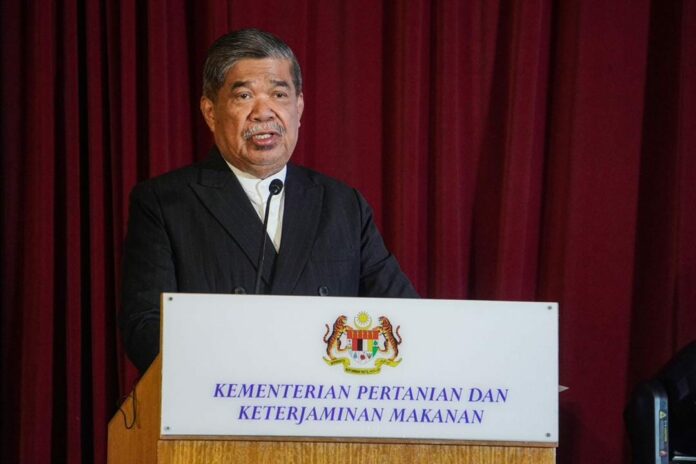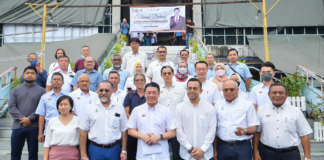PUTRAJAYA, Sept 26 — The standard operating procedures for granting wholesale licences to restaurant owners to enable them to buy imported white rice (BPI) at wholesale prices from Padiberas Nasional Bhd (Bernas) will be detailed.
Agriculture and Food Security Minister Datuk Seri Mohamad Sabu said his ministry (KPKM) via the Padi and Rice Regulation Office will have a meeting with stakeholders regarding the SOP details for the granting of a wholesale licence.
“Restaurant owners will be offered the wholesale price to buy BPI so that they do not focus only on local white rice (BPT) for food sales at restaurants and also as a short-term measure to overcome the lack of BPT in the market,” he said.
Mohamad said this at a press conference after officiating the 25th Malaysian National Committee on Irrigation and Drainage Conference here today.
On Sept 24, KPKM reportedly decided to give wholesale licences to restaurant owners so that they can purchase BPI at a wholesale price of RM3.20 per kilogramme from Bernas. The various associations of restaurant owners will need to submit an application to the ministry to obtain the wholesale licence involved.
The media had earlier reported that the Malaysian Muslim Restaurant Owners Association (Presma) had asked the government to immediately detail SOPs in connection with wholesale licences that can be given to restaurant owners following difficulties in obtaining BPT, resulting in many being fully reliant on BPI.
With regard to the rice monopoly issue raised by many parties, Mohamad said the government needs a solid reason and a certain period if it wants to break the national rice monopoly currently controlled by Bernas, because the government is bound by an agreement with Bernas for a period of 10 years, that is from Jan 11, 2021 to Jan 10, 2031.
“We have discussed this issue (breaking the rice monopoly) before…if we want to break this agreement, we will need time and a strong reason (to do so),” he said.
“If we want to do an overhaul, there needs to be discussions with the Economy Ministry, Finance Ministry as well as the Prime Minister’s Department because the rice issue involves food and food security that need to be addressed together.
“Because of this, breaking any monopoly is something that needs to be taken into account, at the same time the issue of sustainability also (needs to) be taken into account. However, in this very important matter, I am confident that the Cabinet can make recommendations or changes from time to time,” he said.
Commenting on UMNO Youth chief Dr Muhamad Akmal Saleh’s suggestion that the sale of subsidised local rice should be only to Malaysians and not to foreigners, Mohamad said the matter actually should not become an issue as it involves humanity and welfare issues.
“We know foreigners come here (Malaysia) and we have called them (to work), especially in sectors that need manpower such as plantations, manufacturing as well as being security guards. To me, it is a question of humanity, they need to eat so this consideration is necessary.
“In this situation, let us not be hasty… if our people are working overseas and they cannot get cheap rice to feed themselves, we will feel it. So it’s a matter of human rights…I feel we need to allow them (foreigners) to buy rice in Malaysia and this includes local rice.
















